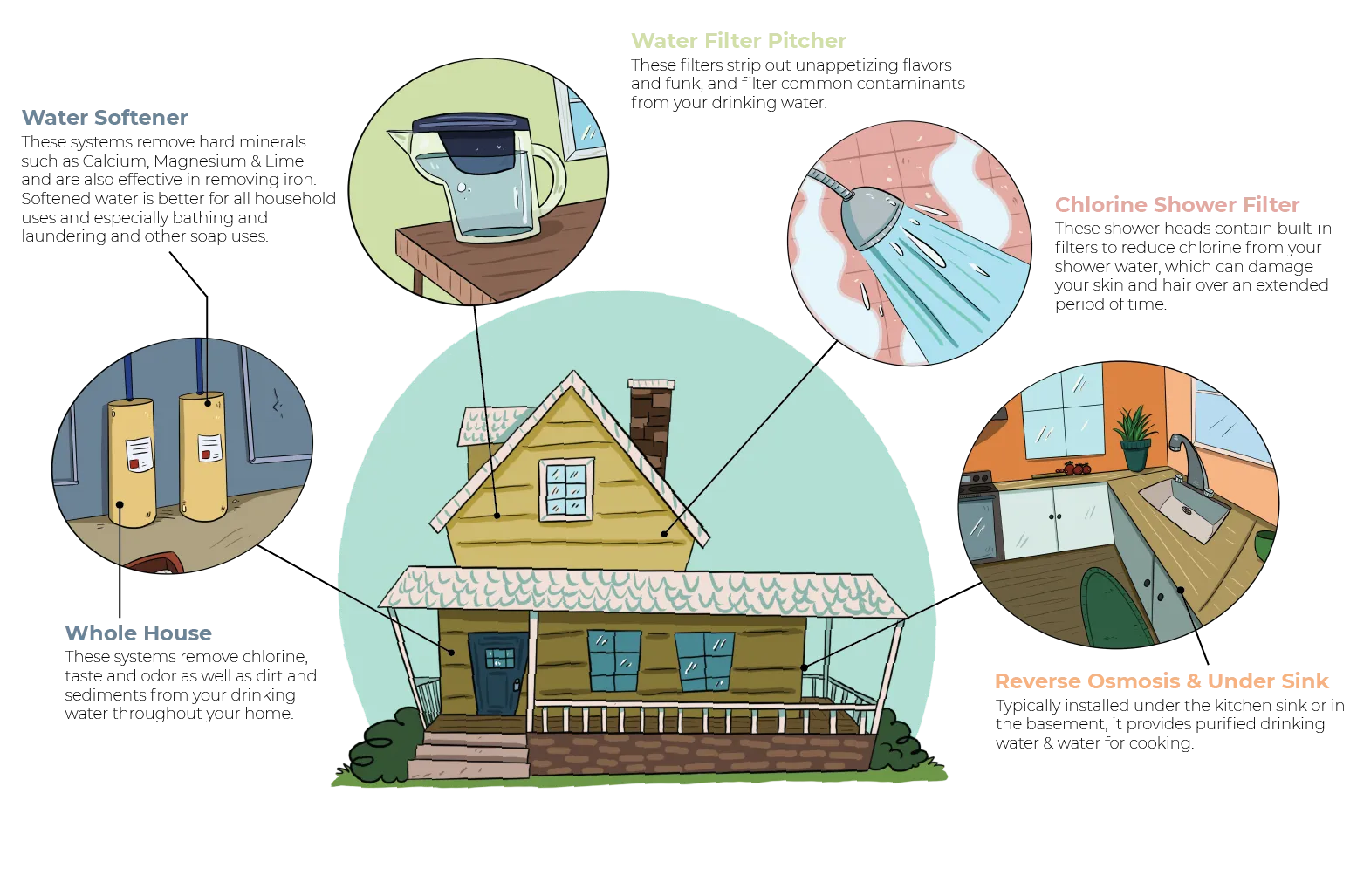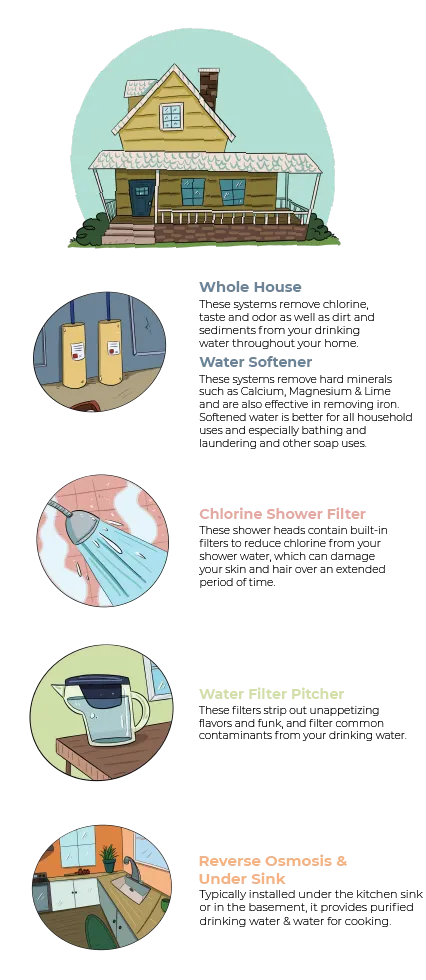How your plumbing and water quality are connected...
Have you noticed a weird smell coming from your drains? Or, have you noticed a lower water pressure? Regular plumbing maintenance can help with both of these things, and improve water quality.
Have a heating, cooling, or plumbing problem, but no time to wait for a repairman? Need a second opinion on an existing quote?
We’ll give you free advice about your question or problem. In many cases, you’ll get an estimate or the help you need during the video call.
How are plumbing and water connected?
Here are just a few ways plumbing issues commonly affect water quality, or conversely, how poor water quality can shape a home’s plumbing:


Corrosion
We know that mineral buildup and foreign chemicals can cause clogs, but did you know it might also be corroding your pipes, plugs, and valves? If acid makes its way into your water supply, it can result in damaged and thinning pipes. Leaks and breakages can occur if the water is left unconditioned.
Commercial Service offers 24/7 emergency services and is always happy to send over a certified technician to assess any potential problems. For non-emergency repairs, schedule an appointment with our easy Online Scheduling or by calling 812-339-9114.
Water Flow Restriction
Mineral buildup from low-quality water can cause a collection of hard water scales in your pipes. The substance lines your pipes and can get severe enough that it leads to low water pressure. Poor water flow causes your appliances to work insufficiently and may even cause permanent damage.
Stains and Spots
No one likes their sinks, toilets, tubs, and showers looking grimy because of their water. The minerals in low-quality water can produce spots and film on your fixtures. Unsightly “rings” and stains that come from rust in your water can appear near drains and around the entire fixture. The longer the water leaves these marks, the more difficult it may be to remove them. Water treatment can help eliminate your problems with stains and help your fixtures stay clean longer.
But it is not all doom and gloom! Over the last few years, water filtration technology has been making the process of improving your home’s water quality easier and more efficient. So which water filtration is best for you? Knowing some of the most popular types of water filtration technology can help you decide what you need.
Types of Water Filtration Systems
Water Softeners
This is the most well-known and popular type of water filtration. Water softeners aim to remove minerals like calcium and magnesium, the minerals that give the dreaded “hard” effect. While hard water is not necessarily dangerous to your health, it can lessen the effectiveness of cleaning solutions it is mixed with. Traditional water softeners take minerals that have been naturally taken from the earth and replace them with sodium. While there are different types of water softeners available, they all work by using a tank to take the water through the process of removing hard minerals.
Reverse Osmosis
Perhaps the single most effective type of water filtration, reverse osmosis (RO) units, force water through a multistage filtration process. Stage one is a sediment prefilter, designed to screen out larger debris (such as sand and silt). Next is a carbon filter to remove organic contaminants, including ones that affect water odor and taste. Lastly, a semipermeable membrane takes care of chemical contaminants. In some RO filters, there is even a fourth and final “polishing” stage. The downside? RO filters do not do anything to remove the presence of microorganisms.
Ultraviolet Light
A relative newcomer to the scene, ultraviolet (UV) water purification does what reverse osmosis does not – that is, it kills germs, preventing the transmission of viruses and bacteria. While it is true that municipal water undergoes chlorine treatment before being transferred to your home, UV picks up where chlorine leaves off, removing 99.9% of the microorganisms that chlorine fails to kill. However, it is important to remember that UV does nothing to remove other types of water contaminants, so many plumbing experts suggest that this technology works best in addition to your water softener and RO systems. UV should be used as a supplementary line of defense.
Activated Charcoal
Especially common in drinking water systems, carbon-based filters capitalize on a special characteristic of charcoal. Many common organic impurities naturally bind to its craggy surface. The catch? In its natural state, charcoal does not have enough surface area to deliver adequate filtering capacity. Once “activated” by an oxygen treatment, though, charcoal gains countless tiny pores, each one of which becomes a bonding site ready to capture contaminants. Activated charcoal may not be quite as effective as reverse osmosis, but if you are concerned primarily with the taste and aesthetics of household drinking water, this could be the option that works best for you.
If you have questions about plumbing maintenance, want to get your water tested, or need help choosing and installing a water filtration system, schedule an appointment with our easy Online Scheduling or by calling 812-339-9114.



